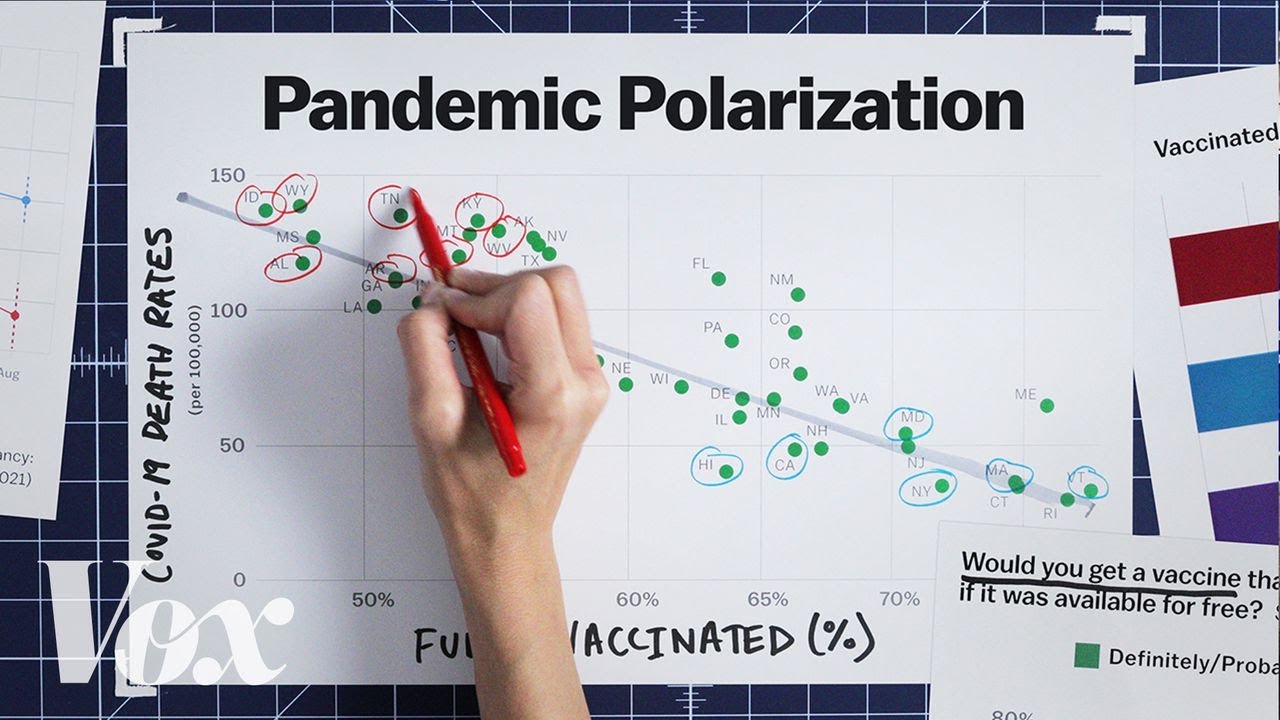The video transcript explores the complex dynamics of the COVID-19 pandemic in the United States, particularly highlighting the sharp division between vaccinated and unvaccinated populations, which maps strongly onto political affiliations. Over 900,000 Americans lost their lives during the pandemic’s first two years, but vaccination efforts beginning in spring 2021 introduced a significant divide: unvaccinated individuals faced dramatically higher death risks, especially during waves driven by the Delta and Omicron variants. Personal stories like those of Philly Baird and Phil Valentine underscore the real human cost of vaccine hesitancy and misinformation.
Crucially, the transcript reveals that vaccine hesitancy is deeply intertwined with political identity. While a majority of Republicans have received at least one vaccine dose, most unvaccinated Americans identify as Republican, which correlates with higher COVID-19 death rates in Republican-leaning states after vaccine rollout. This political polarization around COVID-19 vaccines did not exist before vaccines were available; initially, the pandemic impacted states relatively evenly.
The politicization of the virus, amplified by conflicting messages from political leaders and media outlets, created an environment where many Republicans distrusted COVID-19 severity data and vaccine information. The early pandemic period saw widespread misinformation, including false beliefs that the government exaggerated COVID-19 death counts. This skepticism hardened months before vaccines were available and before anti-vaccine content proliferated on social media and conservative news outlets like Fox News.
The transcript also highlights how media consumption shaped vaccine attitudes. Conservative audiences relied heavily on a single network and social media, which often presented contradictory or misleading vaccine messages. This polarization was exacerbated by political leaders who, despite many Republicans being vaccinated, hesitated to strongly endorse vaccines for fear of alienating their base.
Experts in the transcript argue that a unified, bipartisan public health message early on could have mitigated much of the polarization and vaccine resistance. The ongoing division poses risks beyond COVID-19, as declining trust in vaccines could spill over into other immunizations, threatening broader public health outcomes.
Originally posted 2025-06-03 03:55:27.

